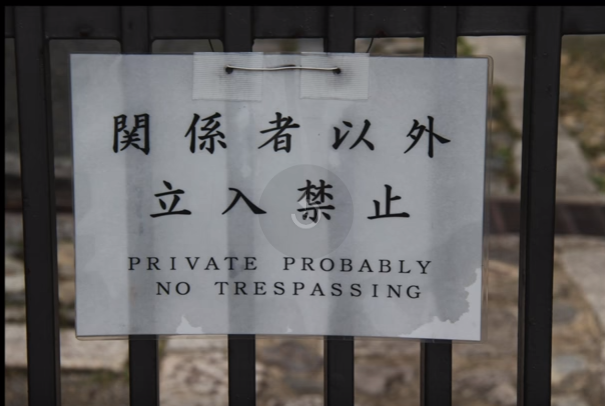Archive for July, 2016
"Linguistics has evolved"
From alice-is-thinking on tumblr, three weeks ago, forwarded by a 20-year-old correspondent:
The accompanying note:
this seems to be a rly common phenomenon among millennials who are especially active on social media – myself included
Read the rest of this entry »
Sino-Japanese
I recall that, as a graduate student in Sinology, one of the most troublesome tasks was figuring out how to romanize the names of Japanese authors, the titles of their works, place names, technical terms, and so forth. Overall, Japanese Sinological (not to mention Indological and other fields) scholarship is outstanding, so we have to consult it, and when we cite Japanese works, we need to be able to romanize names, titles, and so forth to reflect their Japanese pronunciations.
Read the rest of this entry »
Post Office nerdview (capped)
Postal orders are a way for people in Britain to send money by post without having a checking account, but there is a fee, dependent on the face value of the order. For a postal order with a face value of more than £100 the fee is shown on the Post Office web page as "Capped at £12.50", which puzzled Matt Keefe. He wrote to me to ask if it was an instance of nerdview. Absolutely; that's exactly what it is.
Read the rest of this entry »
Permalink Comments off
Corpus-based judicial opinions
Gordon Smith, "Michigan Supreme Court Embraces Corpus Linguistics", The Conglomerate 6/28/2016:
In the case of People v. Harris, the Michigan Supreme Court became the first state supreme court in the United States to embrace corpus linguistics. (I have written here about Justice Thomas Lee's concurrence in the Utah Supreme Court's Rasabout case, which is cited in this Michigan opinion.) The consolidated cases relate to the "Disclosures by Law Enforcement Officers Act" (DLEOA), which bars the use in a subsequent criminal proceeding of all "information" provided by a law enforcement officer under threat of any employment sanction. While the act does not distinguish between true and false statements, the court used corpus analysis to investigate whether "information" must be true. The majority concludes, "false or inaccurate information cannot be used against a law enforcement officer in subsequent criminal proceedings. To hold otherwise would defeat the Legislature's stated intent…."
Read the rest of this entry »
Hillary's "sigh"
Eric Garland of The Hill shares a video of Hillary Clinton at a June 22 campaign appearance in North Carolina, and it provides ammunition for those who would like to portray her as a soulless automaton vainly trying to seem like an authentic human being.
https://vine.co/v/5zdrHezXlbV
Read the rest of this entry »
That false and senseless Way of Speaking
Some eloquent 17th-century Quaker peeving, from The history of the life of Thomas Ellwood: Or, an account of his birth, education, &c. with divers observations on his life and manners when a youth: … Also several other remarkable passages and occurrences. Written by his own hand. To which is added, a supplement by J. W., 1714:
Again, The Corrupt and Unfound Form of Speaking in the Plural Number to a Single Person (Y O U to One, instead of T H O U ;) contrary to the Pure, Plain and Single Language of T R U T H T H O U to One, and Y O U to more than One) which had always been used, by G O D to Men, and Men to G O D, as well as one to another, from the oldest Record of Time, till Corrupt Men, for Corrupt Ends, in later and Corrupt Times, to Flatter, Fawn, and work upon the Corrupt Nature in Men, brought in that false and senseless Way of Speaking, Y O U to One ; which hath since corrupted the Modern Languages, and hath greatly debased the Spirits, and depraved the Manners of Men. This Evil Custom I had been as forward in as others and this I was now called out of, and required to cease from.
Read the rest of this entry »
Sayable and now writable
In a comment to "Pinyin literature contest" (6/30/16), DG asked an excellent, reasonable question:
I am not a Chinese speaker, so I am wondering if the requirement that it's not originally written in Chinese characters is a sort of honor code, or is there some way to tell from the pinyin submission?
Read the rest of this entry »
Lapsus linguae
Yesterday I gave a lecture on the Bronze Age and Early Iron Age "mummies" (they're really desiccated corpses, but "mummies" sounds cuter) of Eastern Central Asia before an audience of about twenty-five at the Franklin Inn Club in Philadelphia.
Read the rest of this entry »
Private probably
The following two images come from Graham and Kathleen's video diary of a trip to the Daitoku-ji temple complex in Kyoto.
Read the rest of this entry »


